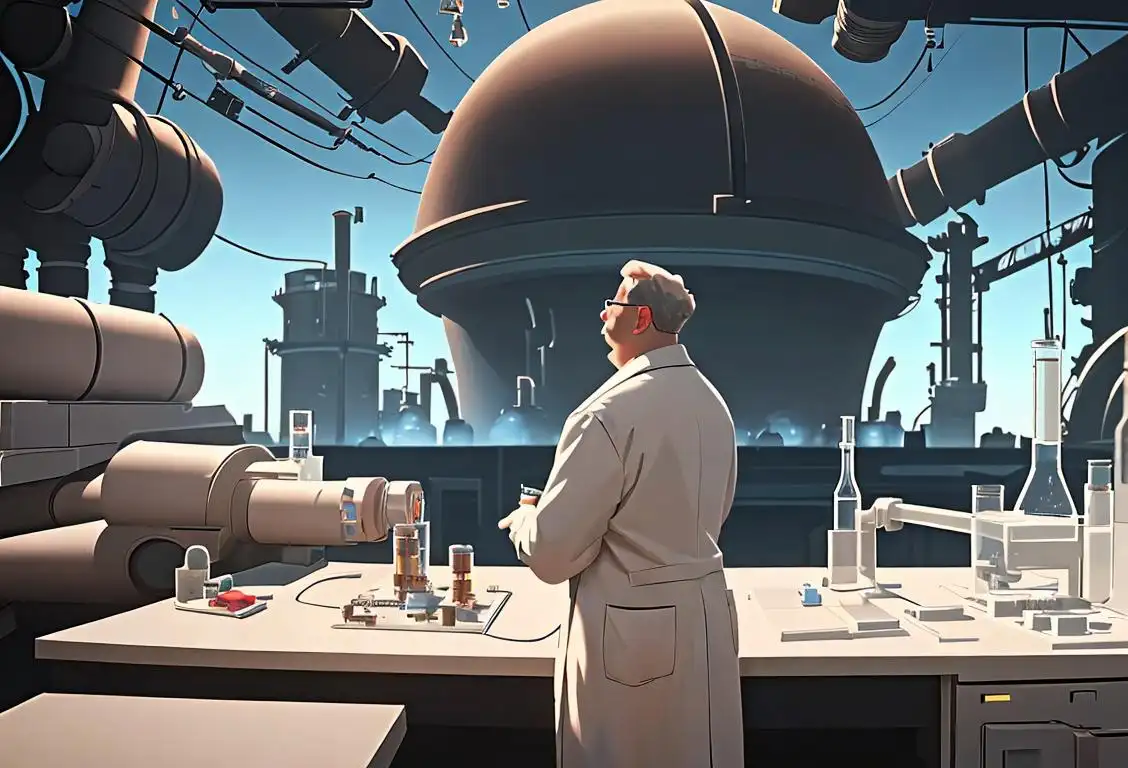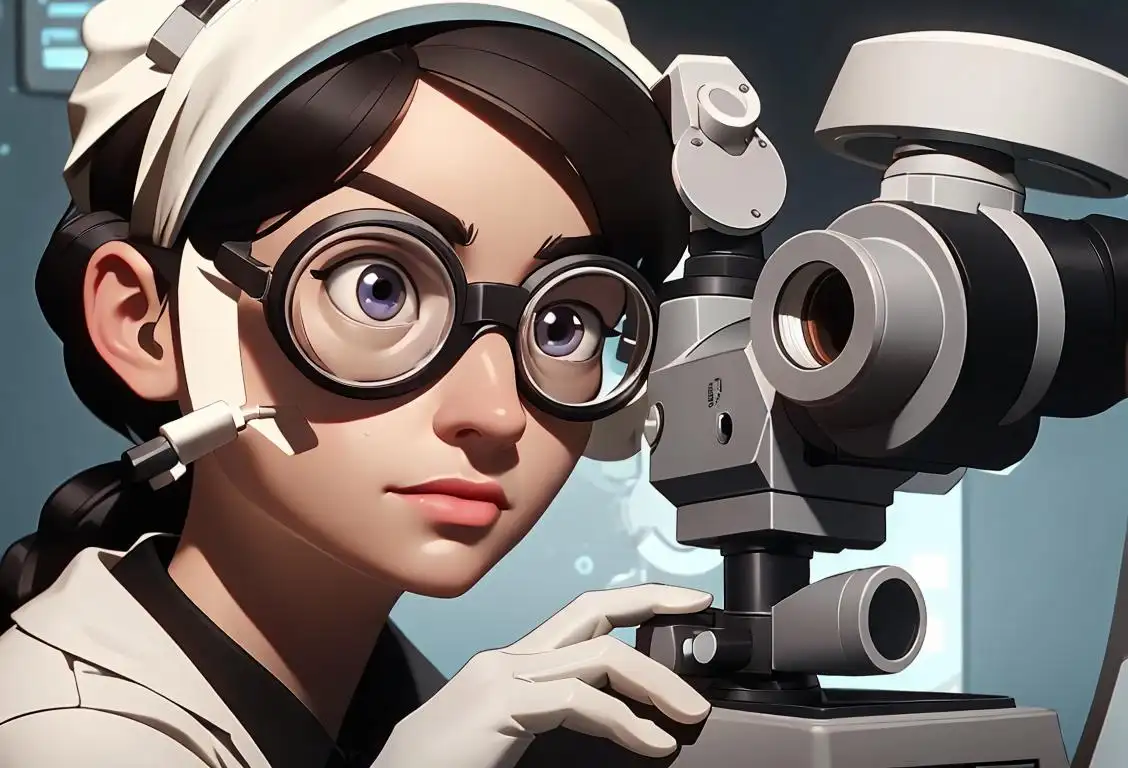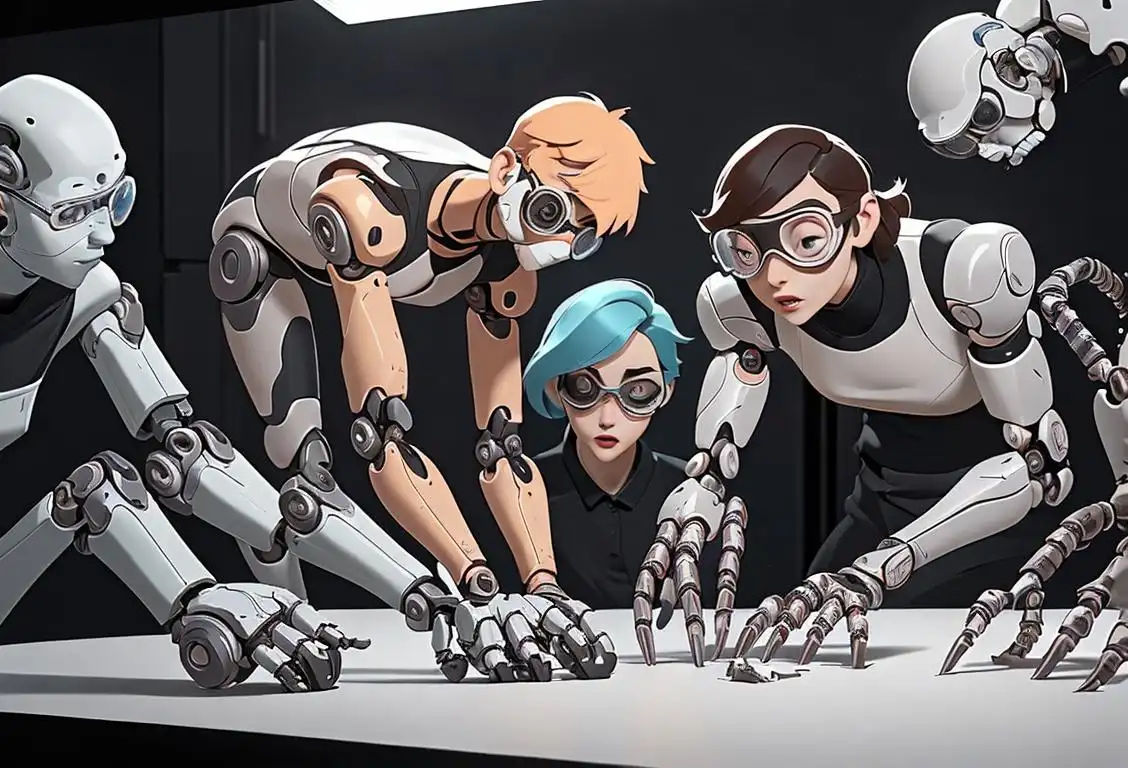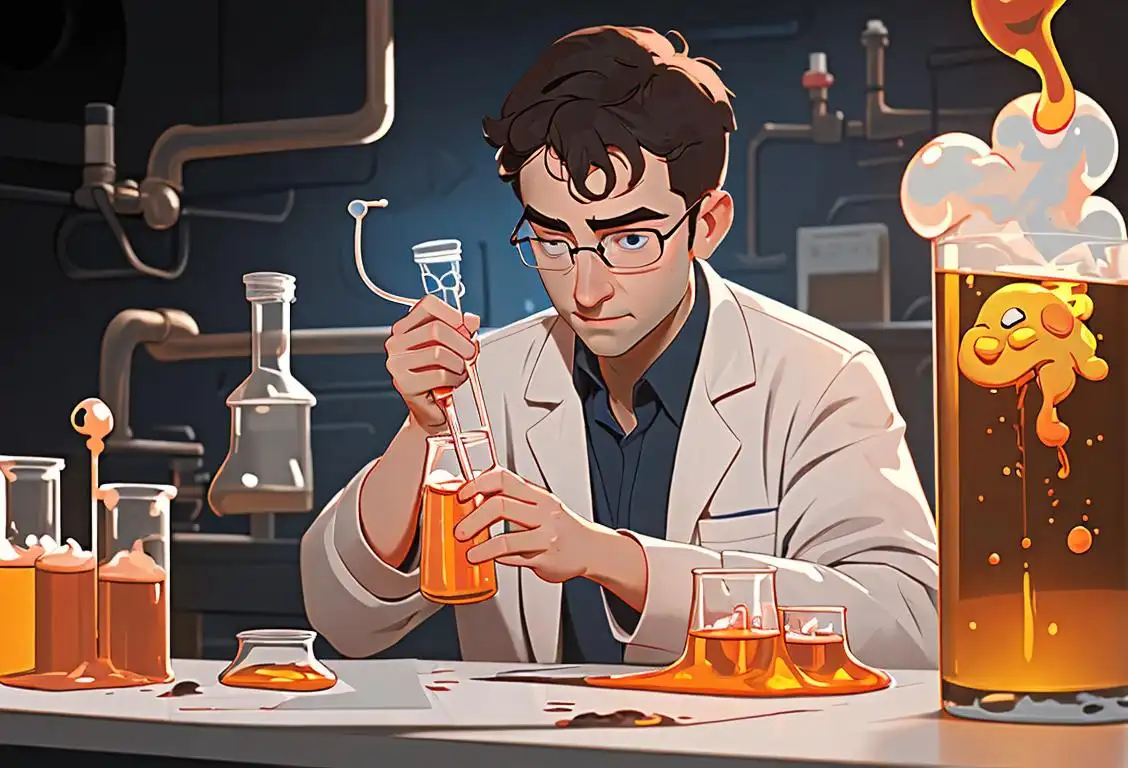National Nuclear Technology Day

Welcome to National Nuclear Technology Day! This electrifying day celebrates all things nuclear, from scientific advancements to energy production. So fasten your radiation suits and get ready for a mind-blowing journey into the world of nuclear technology!
When is Nuclear Technology Day?
It's national nuclear technology day on the 9th April.
A Brief History of Nuclear Technology
It all started back in the 20th century when scientists began unraveling the mysteries of the atom. They soon discovered that splitting the atom could release an immense amount of energy. This groundbreaking discovery laid the foundation for nuclear technology as we know it today.
One of the key milestones in nuclear technology was the development of the first atomic bomb during World War II. It showcased the devastating power that could be harnessed from nuclear reactions, but also raised concerns about the dangerous potential of this newfound power.
After the war, nuclear technology took a more peaceful turn. It became invaluable in medical diagnostics and treatment, with the use of radioactive isotopes in imaging and therapy. Additionally, the emergence of nuclear power plants brought forth a new era in energy production.
Over the years, advancements in nuclear technology have improved safety measures and efficiency. Scientists have developed innovative reactor designs, such as pebble bed reactors and thorium reactors, that offer higher levels of safety and increase fuel efficiency. Exciting developments in nuclear fusion are also being explored, holding the promise of virtually limitless clean energy.
Celebrating National Nuclear Technology Day
On National Nuclear Technology Day, we celebrate the achievements and potential of nuclear technology. It's a day to honor the scientists, engineers, and researchers who have dedicated their lives to unraveling the mysteries of the atom.
One way to celebrate is by learning more about nuclear technology. Take a trip to a local science museum or research facility that focuses on nuclear energy and atomic science. Engage in discussions with experts in the field and gain a deeper understanding of the implications and benefits of nuclear technology.
If you're feeling creative, why not build a mini nuclear power plant using simple household items? Okay, maybe not an actual power plant, but you can definitely construct a model that demonstrates the basics of nuclear fission. Just make sure you use safe materials and keep your experiment contained!
Remember, National Nuclear Technology Day is a day to appreciate the advancements made in nuclear technology, but also to consider the importance of safety and ethical responsibilities that come with it.
History behind the term 'Nuclear Technology'
1895
Discovery of Radiation
In 1895, Wilhelm Conrad Roentgen discovered X-rays, a form of radiation, while conducting experiments with cathode rays. This groundbreaking discovery opened up a whole new understanding of invisible energy and its potential applications.
1896
Radioactivity is Observed
In 1896, Henri Becquerel accidentally discovered radioactivity while experimenting with uranium salts. He found that the uranium emitted a type of radiation that could penetrate opaque materials and leave impressions on photographic plates. This marked the beginning of the study of radioactivity and the exploration of its properties.
1902
Discovery of the Atomic Nucleus
In 1902, Ernest Rutherford proposed the existence of a dense, positively charged atomic nucleus based on his experiments with alpha particles. This theory laid the groundwork for understanding the structure of the atom and the potential for manipulating its immense energy.
1938
Nuclear Fission
In 1938, German chemists Otto Hahn and Fritz Strassmann, along with Austrian physicist Lise Meitner, discovered nuclear fission. They found that bombarding uranium with neutrons caused the nucleus to split into smaller fragments, releasing a tremendous amount of energy. This groundbreaking discovery paved the way for the development of nuclear power and atomic weapons.
1942
Manhattan Project
In 1942, during World War II, the United States initiated the top-secret Manhattan Project. Led by physicist J. Robert Oppenheimer, the project aimed to develop atomic weapons utilizing nuclear technology. It brought together some of the brightest scientific minds of the time, and its successful outcome led to the creation of the first atomic bombs.
1951
Commercial Nuclear Power Begins
In 1951, Experimental Breeder Reactor I (EBR-I) in Idaho became the first nuclear reactor to generate electricity for public use. This marked the birth of commercial nuclear power and heralded a new era in energy production. Nuclear power plants became a significant source of electricity, providing an efficient and relatively clean energy alternative compared to fossil fuels.
1970s
Nuclear Power Expansion
During the 1970s, numerous countries around the world embraced nuclear power as a viable energy source. The demand for electricity rose, and nuclear reactors provided a reliable solution. However, concerns about safety, waste disposal, and the potential for accidents became dominant issues in the public debate surrounding nuclear technology.
1986
Chernobyl Disaster
On April 26, 1986, the Chernobyl nuclear power plant in Ukraine experienced a catastrophic reactor meltdown, resulting in a massive release of radioactive materials into the environment. The Chernobyl disaster was the worst nuclear accident in history, highlighting the devastating consequences of inadequate safety measures and human error in managing nuclear technology.
2011
Fukushima Nuclear Disaster
On March 11, 2011, the Fukushima Daiichi nuclear power plant in Japan was severely damaged by an earthquake and subsequent tsunami. This event led to a major nuclear disaster, with multiple reactors experiencing meltdowns and the release of radioactive materials. The Fukushima incident reignited global concerns about the safety and risks associated with nuclear technology.
Present
Advancements and Debate
In the present day, nuclear technology continues to advance, with ongoing efforts to improve safety, waste management, and the efficiency of nuclear power generation. While nuclear energy has the potential to provide clean and abundant electricity, it remains a subject of debate due to safety concerns, proliferation risks, and the challenge of nuclear waste disposal.
Did you know?
Did you know that the word 'nuclear' comes from the Latin word 'nucleus,' meaning 'core'? It's quite fitting, considering that at the heart of nuclear technology lies the incredible power locked away within the atom.Tagged
technology science energyFirst identified
2nd April 2015Most mentioned on
9th April 2018Total mentions
243Other days
Nuclear Technology Day
Nano Day
Biomechanics Day
Hydrogen Day
Thermal Engineer Day
Stem Day
Geothermal Day
Battery Day
Hydrogen And Fuel Cell Day
Grid Expects Day








